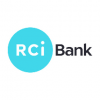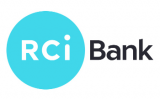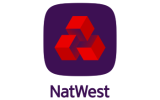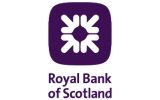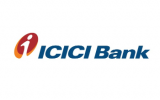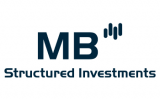Savings Offer – 3 Year Fixed Rate
3 Year Fixed Rate
Earn 4.45% AER Fixed Interest
- Provider – RCI Bank
- Minimum deposit – £1,000
- Interest paid monthly or annually
- Fixed rate for 3 years
What to look for when selecting a 3 year fixed rate bond
While instant access and easy access and notice accounts provide very short term solutions if you are prepared to tie up capital for a set period of time a fixed rate bond could be right for you.
Different terms are available with many savings providers offering 1 year, 2 year, 3 year and 5 year fixed rate bond options. 4 year fixed rate bonds are less commonly available.
- For savers who are prepared to lock capital away for a 3 year period, a 3 year fixed rate bond will generally offer a higher rate of interest than a shorter term account. Some providers offer 3 year fixed rate cash ISAs so you benefit from tax free interest returns.
- 3 year fixed rate bonds normally have a minimum subscription age of 18 but some providers offer fixed rate bonds to younger savers.
- Normally there is a minimum commitment for depositing money into a 3 year fixed rate bond – usually around £1,000, but this can be more.
- With a 3 year fixed rate bond savings providers do not normally allow you to access your money during the savings term and if they do there are normally conditions which may involve a loss of interest so ensure you read the terms and conditions before you sign up. Some fixed interest providers will allow withdrawals during the two year term but there may be interest penalties.
- The savings interest you earn during the 3 year fixed term is treated as income and you may have to pay tax on it depending on your circumstances. If you don’t pay tax you can receive interest gross if you complete HMRC tax form R85 which is available from your savings provider or directly from HMRC. Some fixed rate savings accounts will pay interest gross and it is up to you to declare any tax owed to the Inland Revenue. Some 2 year fixed rate bonds pay interest monthly, quarterly, annually or on maturity which allows you to plan you tax planning.
- Fixed rate bonds are cash deposit based and you will get back your original deposit plus any interest owed unless the bank or building society gets into serious financial difficulty. In the unlikely event that the fixed rate bond provider defaults the FSCS (Financial Services Compensation Scheme) would pay compensation of up to £85,000 per account holder per authorised institution.
What are the features of a 3 year fixed rate bond?
Some fixed rate bonds pay interest on maturity rather than on a monthly or annual basis and in this respect the tax you pay will be determined by your tax status at that point. This can be useful for tax purposes if you know your tax status will change in the future.
The length of term you opt for should be carefully considered. If there is a chance you may need your capital earlier before the 3 year term is up consider a shorter deposit term. If you need rapid access to your cash, a 5 year bond is probably not the best option.
Minimum deposits usually start from £500. It is important to note that some 3-year bonds don’t allow you to top up your money during the fixed term, so check the terms and conditions if this is important to you.
Withdrawals are either not permitted or restrictions will apply. Read the bond provider terms and conditions so that you know what you are getting into. Some bond providers, for example, will allow withdrawals during the bond term, though penalties may apply.
What are the advantages & disadvantages of a fixed rate bond?
Advantages of Fixed Rate Bonds
- The interest rate offered is guaranteed for the 3 year term of the bond. This is unlike instant access savings accounts where the interest rate can go down or up at short notice.
- Different banks and building societies will have different views on medium to long term interest rates. If interest rates rise more slowly than expected a fixed rate bond may give you a better return than what you could expect from an instant access account.
- Some fixed rate bonds provide flexibility e.g. 1 withdrawal over the term.
- Fixed rate bonds range from 2 months to 5 years in duration so you can choose a term that suits your circumstances
- Many fixed rate bond providers offer online access so you can see how much interest you are earning.
Disadvantages of Fixed Rate Bonds
- The benefit of enjoying a higher rate of interest must be weighed against tying up your capital for a fixed term. If you need access to your capital before maturity this may not be possible and if it is there may be interest penalties.
- If interest rates rise over the term of the investment you may find the interest rate on your capital is no longer competitive compared to new offerings in the market.
- Many fixed rate bond providers require a high minimum deposit e.g. £5,000
Top tips for finding the best 3 year fixed rate bonds in 2024
- Interest Rates are changing all the time Consider all options – from instant access to fixed rate bonds to Cash ISAs – All have advantages and disadvantages when trying to build a nest egg for the future.
- Shop around the savings market – Fixed rate bond interest rates are changing all the time and deals on fixed rate bonds come and go.
- The choice of 3 year fixed rate bond bond is principally dependent on the amount of money you intend to save and the rate of interest, and the length of the fixed rate period. Other factors might include how you want the bond to be operated on an online account basis, postal basis or telephone basis. These should all be taken into consideration before making your choice. Read the savings bond provider terms and conditions carefully.
- Read the small print – determine when the provider is likely to let you access your money, how much notice is required, and if there are any penalties for requesting access before the 3 year fixed rate bond matures.
- Check that your money is covered by the Financial Services Compensation Scheme – they will guarantee £85,000 of savings against institutional failure. Most UK banks should have this cover.
- Savings bond providers will write to you when your account matures; if you do not respond within a certain time the provider will often put your savings into a low or no interest holding account until you provide instructions on what you want to do with the money. It is therefore important to diarise the maturity of your fixed rate bond and have in mind what you want to do with the maturity proceeds.
Fixed Rate Bond Provider Links
- AA Fixed Rate Bonds
- Abbey Fixed Rate Bonds
- Access Bank Fixed Rate Bonds
- Alliance and Leicester Fixed Rate Bonds
- Aldermore Fixed Rate Bonds
- Bank of Cyprus Fixed Rate Bonds
- Bank of Scotland Fixed Rate Bonds
- Barclays Fixed Rate Bonds
- Barnsley Building Society Fixed Rate Bonds
- Bath Building Society Fixed Rate Bonds
- Birmingham Midshires Fixed Rate Bonds
- Bradford and Bingley Fixed Rate Bonds
- Britannia Fixed Rate Bonds
- Cambridge Building Society Fixed Rate Bonds
- Cater Allen Fixed Rate Bonds
- Chelsea Building Society Fixed Rate Bonds
- Chesham Building Society Fixed Rate Bonds
- Clydesdale Bank Fixed Rate Bonds
- Co-operative Bank Fixed Rate Bonds
- Coventry Building Society Fixed Rate Bonds
- Darlington Building Society Fixed Rate Bonds
- Derbyshire Building Society Fixed Rate Bonds
- Dunfermline Building Society Fixed Rate Bonds
- First Save Fixed Rate Bonds
- Ford Money Fixed Rate Bonds
- Halifax Fixed Rate Bonds
- HSBC Fixed Rate Bonds
- ICICI Bank Fixed Rate Bonds
- ING Direct Fixed Rate Bonds
- Ipswich Building Society Fixed Rate Bonds
- Julian Hodge Fixed Rate Bonds
- Kent Reliance Fixed Rate Bonds
- KRBS Fixed Rate Bonds
- Leeds Building Society Fixed Rate Bonds
- Lloyds Fixed Rate Bonds
- Masthaven Bank Fixed Rate Bonds
- Nationwide Fixed Rate Bond
- NatWest Fixed Rate Bonds
- Newcastle Building Society Fixed Rate Bonds
- Northern Rock Fixed Rate Bonds
- Nottingham Building Society Fixed Rate Bonds
- Post Office Fixed Rate Bond
- RBS Fixed Rate Bonds
- RCI Bank Fixed Rate Bonds
- Saga Fixed Rate Bonds
- Sainsbury’s Fixed Rate Bonds
- Santander Fixed Rate Bonds
- Scottish Widows Bank Fixed Rate Bonds
- Skipton Building Society Fixed Rate Bond
- Standard Life Fixed Rate Bonds
- Tesco Fixed Rate Bonds
- Vanquis Bank Fixed Rate Bonds
- West Bromwich Fixed Rate Bonds
- Yorkshire Bank Fixed Rate Bonds
- Yorkshire Building Society Fixed Rate bonds


